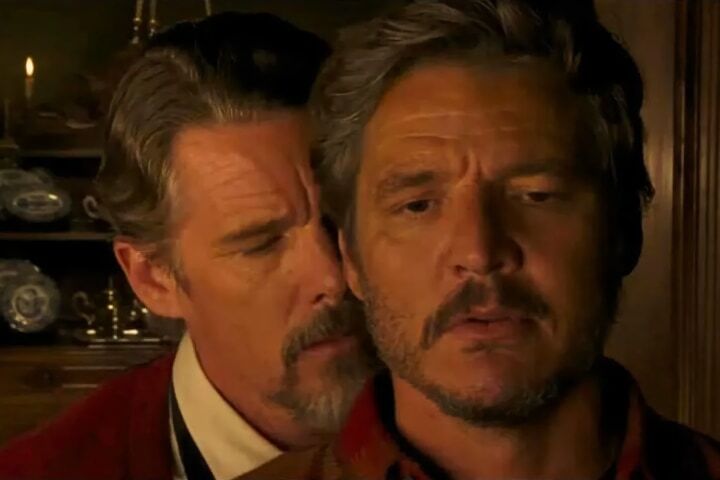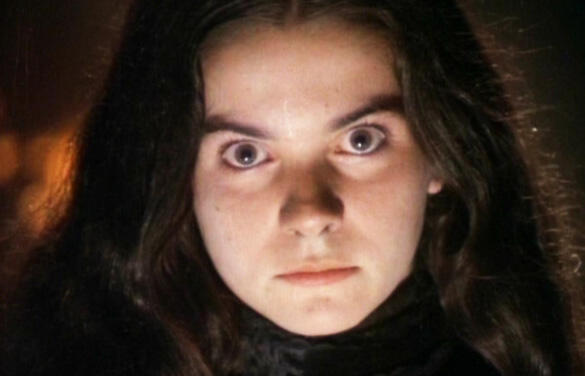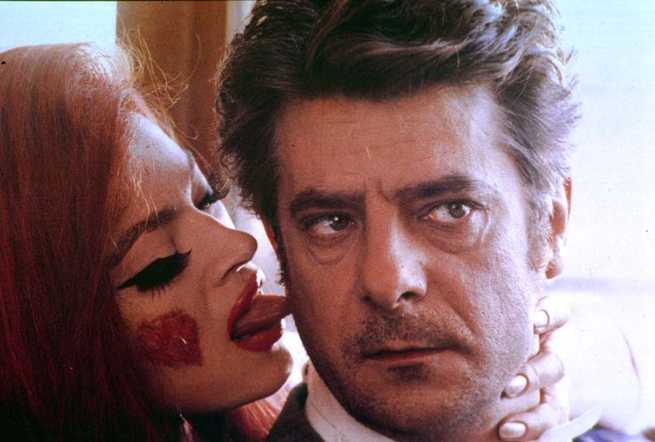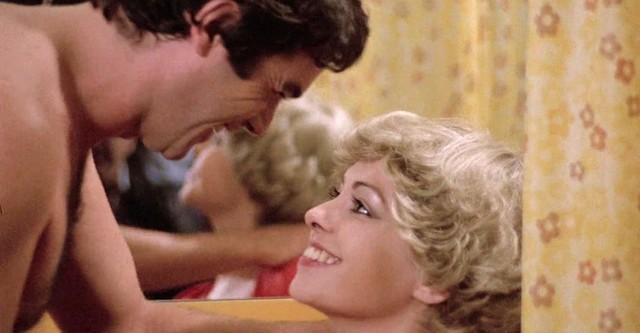Strange Way of Life (2023)
![]()
Strange Way of Life (2023) Directed by Pedro Almodovar
Considering that this is a film by a filmmaker who has done nothing but conceive some of the most emancipated, vivacious female characters in the history of modern cinema, the absence of such gynocentric hallmarks with the lack of bold women caught me by surprise. However, when you take into account the context, concept and mythology of the genre in which this gripping short film is set, the exclusion of female ubiquity inherent in the director’s filmography here is vindicated once you consider the political, sexual and social revisionist lens through which the most traditional American genre of all is scrutinized. Cowboys, gunfighters, outlaws and sheriffs; vast deserted lands, cheap saloons and strong-smelling bourbon; tales of revenge, melancholy and pride; the western in its conservative notion is a genre that glamorizes machismo. Although the ethos of the genre is traditionally masculine, it is also one of the most lyrical film genres there is and therefore, one of the most sensitive and passionate. I mentioned at the outset that I was surprised by the absence of relevant women, but I’m not at all surprised that Spain’s Enfant Terrible has placed his interest in that nuanced, sometimes messy sensibility that westerns delicately romanticize. Pedro Almodovar’s bittersweet queer oater is one of the most moving explorations of masculinity, and one of the most delightful deconstructions of the genre ever made. Given that this svelte film packs a plethora of substance into less than half an hour, yes, it’s a refreshingly astute deconstruction, perhaps not as ambitious for obvious reasons, but rewarding, nonetheless.
Someone as defiant as Almodovar, who went from being a pivotal figure for La Movida Madrileña in the 80’s to one of the most lauded Spanish directors of recent times, will invariably strive to be disruptive in any of his endeavors; although my favorite period of his was the 80’s – which I regard as his most transgressive facet and his period of self-discovery – somehow Almodovar has consistently found a way to defy contemporaneity with his peerless post-modernist artistry. Conversely, this wistful western contradictorily aims to be a traditional piece of moviemaking, its narrative allure is earnestly committed to the western format. And yet, even while electing to uphold the formalities of old western classicism, Almodovar’s subversive postmodern style cannot be concealed.
When Silva (Pedro Pascal) – wearing a flamboyant green jacket and a cozy plaid shirt underneath – with an elegiac, pensive countenance, riding with some concern but with precision, without the bravado of John Wayne or Alan Ladd, arrives in a small town to visit Jake (Ethan Hawke), an old friend and lover from the past, the melodramatic tone of the story permeates with ardor and sass what in its first minutes seemed to be a verbatim western. Jake is now a sheriff and has not seen Silva for 25 years; this startling visit, which ignites old feelings in them, leads Jake to question the motives for Silva’s unusual appearance. What begins as a passionate encounter with carnal reminiscences evolves into an Almodovarian tragedy. But unlike most Almodovarian tragedies, this kitschy cowboy movie ends on a non-specific note, concluding its short gay love story with a heartfelt melancholy. Although the plot leaves you with a lingering sense of inconclusiveness, I embraced this laconic form of filmmaking. The poetry resides in the compulsive feeling of wanting to learn more about these two characters and what their future will be like. The doubt is a bittersweet taste that for me can make narrative ellipsis a wonderful method to enhance the excitement and poignancy of a romantic story.
In this horse opera, Almodovar does not euphemize his style, he simply couples it with the idiosyncrasies of the genre and unravels in it an interesting framework in which it features a homoerotic melodrama with anachronistic characters – sometimes the costumes, the dialogues and the colors differ from their geographical surroundings; a curious fact, the film was not even filmed in the United States – willing to behave like the great heroes and anti-heroes of the western but always giving salience to the mythological sensibility that has rarely been exhausted in revisionist westerns. Ethan Hawke and Pedro Pascal are intoxicating and authentic as irresolute and humanly imperfect characters. The abundance of conflicting assets that Almodovar gives them to flesh out sublime interactions of nostalgic love and aggressive ego clashes helps both actors internalize the drama without losing touch with the glorious aestheticism that surrounds them. For all the right reasons, this short film is extraordinarily eye-catching: it’s ostentatiously even-handed in all its sections, if the characters exude sexuality the colors do too, if the framing elicits taciturn moods the dialogue does too, and so does everything else. In a nutshell, it is frustratingly short for such a beautifully sad story, but what an enjoyable frustration it was. An Almodovar-style western is something I never thought I’d see, and to tell the truth, that alone is enough for me to be a fan of it.






